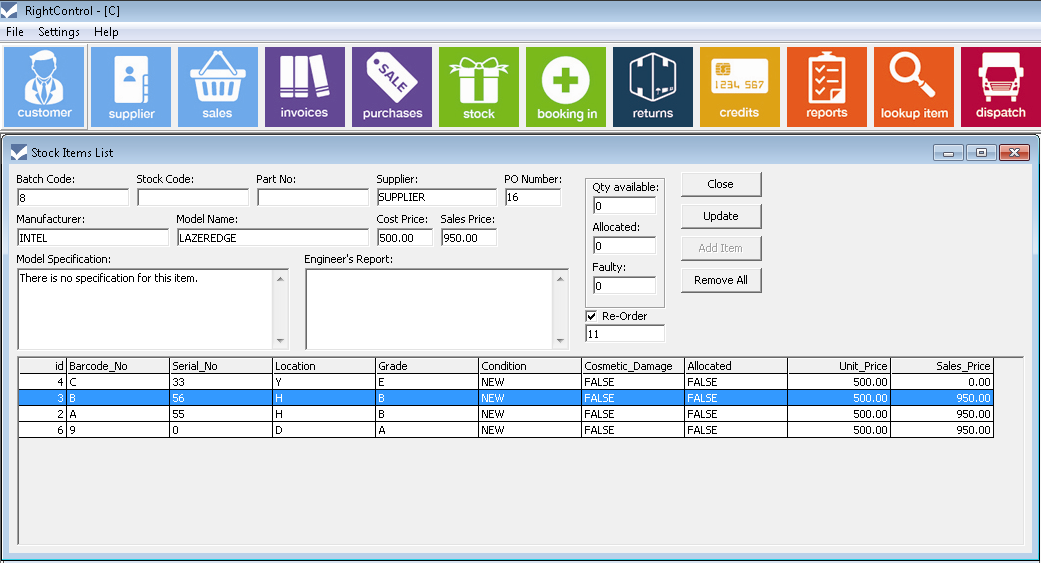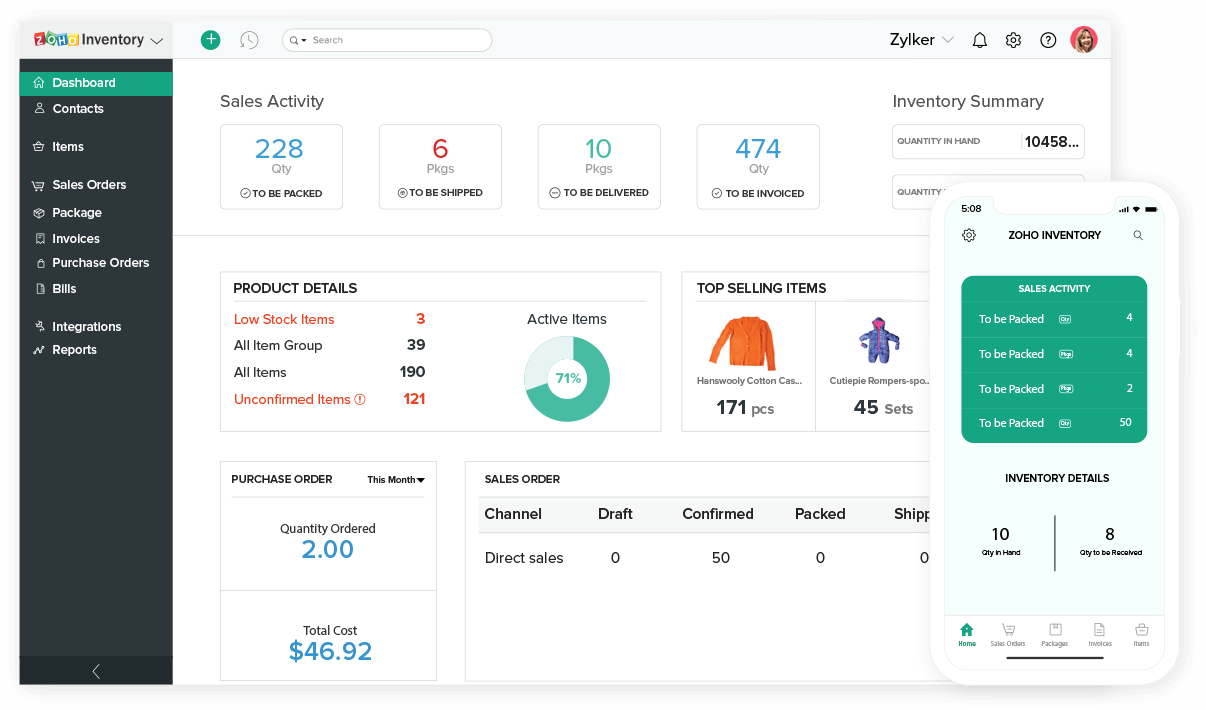Small business accounting software with inventory management – Small businesses seeking to optimize their financial operations and inventory management can find a valuable ally in specialized accounting software. With its ability to streamline processes, enhance accuracy, and provide valuable insights, this software empowers small businesses to make informed decisions and achieve greater efficiency.
By integrating accounting and inventory management functions, businesses can gain a comprehensive view of their financial performance and inventory levels. This integration eliminates manual data entry, reduces errors, and improves collaboration between departments.
Small Business Accounting Software
Accounting software can streamline your financial operations, save you time, and provide valuable insights into your business performance. Here are some key benefits:
- Accurate and timely financial reporting: Generate financial statements like balance sheets and income statements with ease.
- Improved cash flow management: Track your income and expenses to make informed decisions about your cash flow.
- Simplified tax preparation: Many accounting software programs offer tax-related features to help you prepare for tax season.
- Enhanced productivity: Automate tasks like invoicing, billing, and bank reconciliation to save time and reduce errors.
- Improved decision-making: Access real-time financial data to make informed decisions about your business.
Popular Accounting Software Options for Small Businesses
Choosing the right accounting software for your business is crucial. Here are some popular options:
- QuickBooks: A comprehensive accounting software with a wide range of features and integrations.
- Xero: A cloud-based accounting software known for its user-friendliness and ease of use.
- FreshBooks: A cloud-based accounting software designed specifically for small businesses and freelancers.
- Zoho Books: A cloud-based accounting software that offers a range of features, including inventory management and project tracking.
- Wave: A free and easy-to-use accounting software that is suitable for small businesses with basic accounting needs.
Key Features to Look for When Choosing Accounting Software
When selecting accounting software, consider the following key features:
- Ease of use: Choose software that is intuitive and easy to navigate.
- Features: Determine which features are essential for your business, such as invoicing, billing, and inventory management.
- Scalability: Consider software that can grow with your business as it expands.
- Integrations: Check if the software integrates with other business tools you use, such as CRM or e-commerce platforms.
- Customer support: Ensure that the software provider offers reliable customer support in case you encounter any issues.
Inventory Management

Inventory management is crucial for small businesses as it helps them keep track of their stock levels, ensuring they have the right products in the right quantities to meet customer demand while minimizing waste and losses. Effective inventory management enables businesses to optimize their cash flow, reduce costs, and improve customer satisfaction.
There are several methods of inventory management, each with its own advantages and disadvantages. The most common methods include:
First-In, First-Out (FIFO)
- Assumes that the oldest inventory is sold first, regardless of its actual age.
- Useful for perishable goods or products with a short shelf life.
Last-In, First-Out (LIFO)
- Assumes that the most recently acquired inventory is sold first.
- Can be advantageous in periods of inflation, as it reduces the cost of goods sold and increases reported profits.
Weighted Average Cost
- Calculates the average cost of inventory based on the cost of all units in stock.
- Provides a more stable cost of goods sold over time.
To streamline inventory management, many small businesses integrate inventory management software with their accounting software. This integration allows for real-time inventory updates, automated inventory tracking, and seamless integration with sales and purchasing systems.
Examples of inventory management software that integrate with accounting software include QuickBooks Online, Xero, and NetSuite.
Integration of Accounting and Inventory Management
Integrating accounting and inventory management software offers a comprehensive solution for businesses to streamline their financial and operational processes. By seamlessly connecting these two systems, businesses gain real-time visibility into their financial and inventory data, enabling them to make informed decisions and optimize their operations.
Benefits of Integration
- Improved accuracy and efficiency: Automated data transfer between systems eliminates manual data entry, reducing errors and saving time.
- Real-time inventory visibility: Integrated software provides up-to-date inventory levels, allowing businesses to track stock availability, manage stockouts, and optimize inventory levels.
- Enhanced financial reporting: Inventory data is automatically incorporated into financial statements, providing a more accurate and comprehensive view of the company’s financial performance.
- Improved decision-making: Access to real-time data enables businesses to make informed decisions about inventory levels, purchasing, and sales strategies.
Examples of Integration
Accounting and inventory management software can be integrated in various ways:
- Direct integration: Software providers offer integrated solutions that combine accounting and inventory management functionality in a single platform.
- Third-party integrations: Businesses can connect their existing accounting and inventory management software through third-party integration platforms or APIs.
- Custom integrations: For complex requirements, businesses may choose to develop custom integrations to tailor the integration to their specific needs.
Challenges of Integration
- Data integrity: Ensuring data consistency and accuracy during integration is crucial to maintain the reliability of both systems.
- Technical complexity: Integrating different software systems can be technically challenging, requiring specialized knowledge and resources.
- Cost: Implementing and maintaining integrated systems can involve significant upfront and ongoing costs.
- Change management: Integrating accounting and inventory management software can impact business processes and require employee training and adaptation.
Case Studies

Numerous small businesses have leveraged accounting software with inventory management to streamline their operations and enhance profitability. These case studies illustrate the transformative impact of these solutions:
Retail Boutique, Small business accounting software with inventory management
- Software: QuickBooks Commerce
- Benefits:
- Automated inventory tracking, reducing manual errors and stockouts
- Improved customer service with real-time stock visibility
- Enhanced financial reporting for better decision-making
- Challenges:
- Initial setup and data migration required time and effort
- Integration with other business systems required additional resources
Recommendations
Choosing and implementing accounting software with inventory management can significantly benefit small businesses. To maximize the value of this investment, consider the following recommendations:
Software Selection
- Assess your business needs: Determine the specific features and functionalities required for your inventory management and accounting processes.
- Research available options: Explore different software solutions and compare their features, pricing, and user reviews.
- Consider scalability: Choose software that can accommodate your business’s growth and future needs.
Implementation
- Plan and prepare: Gather necessary data, train staff, and ensure a smooth transition to the new system.
- Integrate with other systems: Connect the software to your existing systems, such as POS, CRM, and e-commerce platforms, to streamline operations.
- Monitor and optimize: Regularly review the software’s performance and make adjustments to optimize its effectiveness.
Maximizing ROI
Implementing accounting software with inventory management can yield a significant return on investment (ROI) for small businesses:
- Improved efficiency: Automated processes save time and reduce errors, freeing up staff for more strategic tasks.
- Enhanced accuracy: The software ensures accurate inventory counts and financial reporting, leading to better decision-making.
- Increased profitability: By optimizing inventory management, businesses can minimize waste, reduce costs, and maximize sales.
Conclusive Thoughts: Small Business Accounting Software With Inventory Management

Embracing accounting software with inventory management capabilities can be transformative for small businesses. By leveraging these tools, businesses can streamline operations, improve decision-making, and gain a competitive edge in today’s dynamic market.
Essential Questionnaire
What are the key benefits of using accounting software with inventory management for small businesses?
Streamlined financial operations, improved inventory management, enhanced accuracy, better decision-making, and increased efficiency.
What are some popular accounting software options for small businesses?
QuickBooks, Xero, Sage, NetSuite, and FreshBooks.
How can businesses integrate accounting and inventory management software?
Through direct integrations, third-party connectors, or custom development.